Unlock Radiant Hair with a Vegan Diet: 5 Ways for Stronger Strands
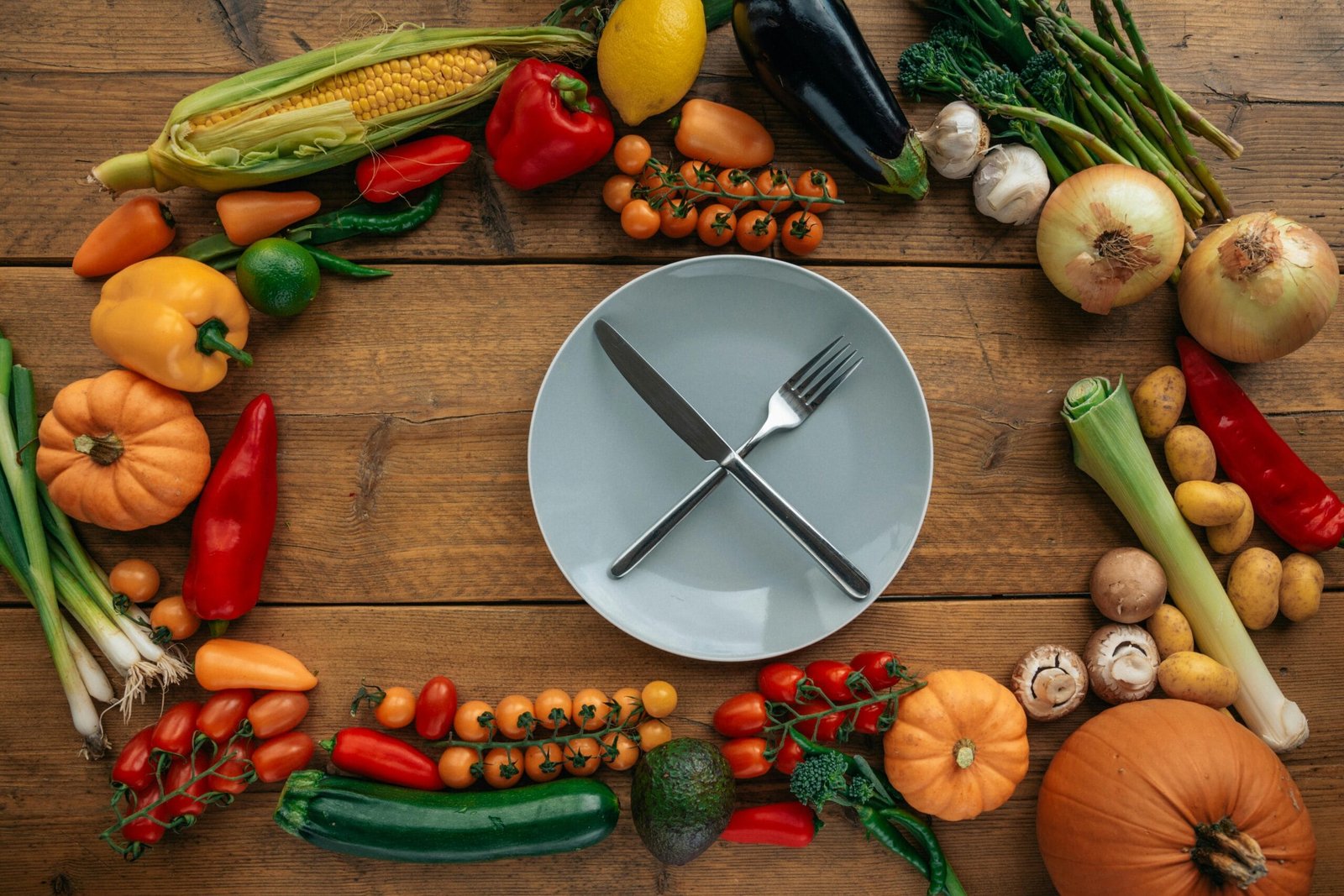
What is a Vegan Diet?
A vegan diet consists entirely of plant-based foods and eliminates everything that comes from animals. Meat, dairy products, eggs, and any other items derived from animals fall under this category. Eating fruits, vegetables, grains, legumes, nuts, and seeds is the foundation of a vegan diet because these foods are high in nutrients and also follow ethical, environmental, and health-related guidelines. Beyond just a dietary regimen, veganism is a way of life that forgoes using animals for sustenance, clothes, or any other reason.
Though its origins are deeper in history, veganism emerged as a modern movement around the middle of the 20th century. Donald Watson, a co-founder of the Vegan Society in the UK, first used the term “vegan” in 1944 to distinguish between vegetarians who ate dairy and those who did not.Nonetheless, the idea of abstaining from animal products originated in antiquated societies like Greece and India, when philosophical and religious organizations promoted animal welfare.
Why Choose a Vegan Diet?
People adopt a vegan diet for various reasons, including health benefits, ethical concerns, and environmental sustainability. Research has shown that a well-planned vegan diet can reduce the risk of chronic diseases such as heart disease, diabetes, and certain cancers. Ethically, many choose veganism to prevent animal cruelty and exploitation. Environmentally, plant-based diets contribute to lower greenhouse gas emissions and reduced land and water usage compared to animal-based food production
Types of Vegan Diets
- Whole-Food Vegan Diet
Eating whole-food plant-based foods with little to no processing is the main goal of the whole-food vegan diet. Fruits, vegetables, legumes, whole grains, nuts, and seeds fall under this category. These foods support optimum health since they are high in vitamins, minerals, and antioxidants. This is one of the healthiest types of veganism because it forgoes processed foods, refined sugars, and oils. It works especially well for people who want to control their weight, lower inflammation, and strengthen their hearts.
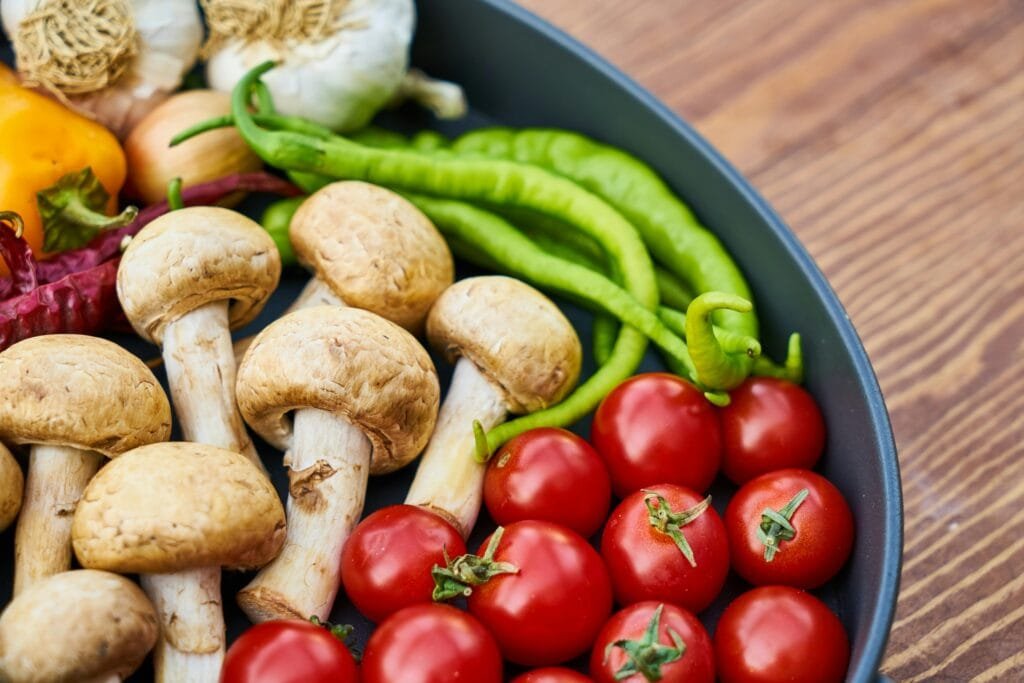
- Raw Vegan Diet
Eating plant-based meals that are raw or cooked at temperatures lower than 118°F (48°C) is the focus of a raw vegan diet. Raw vegans contend that cooking removes some of the nutrients from food and may introduce toxic substances. Fresh fruits, vegetables, nuts, seeds, and sprouted grains make up the majority of this diet. The benefits of raw veganism include better digestion, more energy, and detoxification; nevertheless, to guarantee sufficient nutrient intake, careful planning is needed.
- High-Carb, Low-Fat Vegan Diet
As the name implies, the high-carb, low-fat vegan diet places an emphasis on plant-based carbohydrates while minimizing fats. This diet consists primarily of foods like grains, rice, potatoes, fruits, and vegetables. It limits the consumption of avocado, nuts, seeds, and oils. Supporters of this diet assert that it increases energy, facilitates weight loss, and promotes physical performance. This strategy supports the notion that the body uses carbohydrates as its main energy source and that cutting back on fats improves metabolism and digestion.
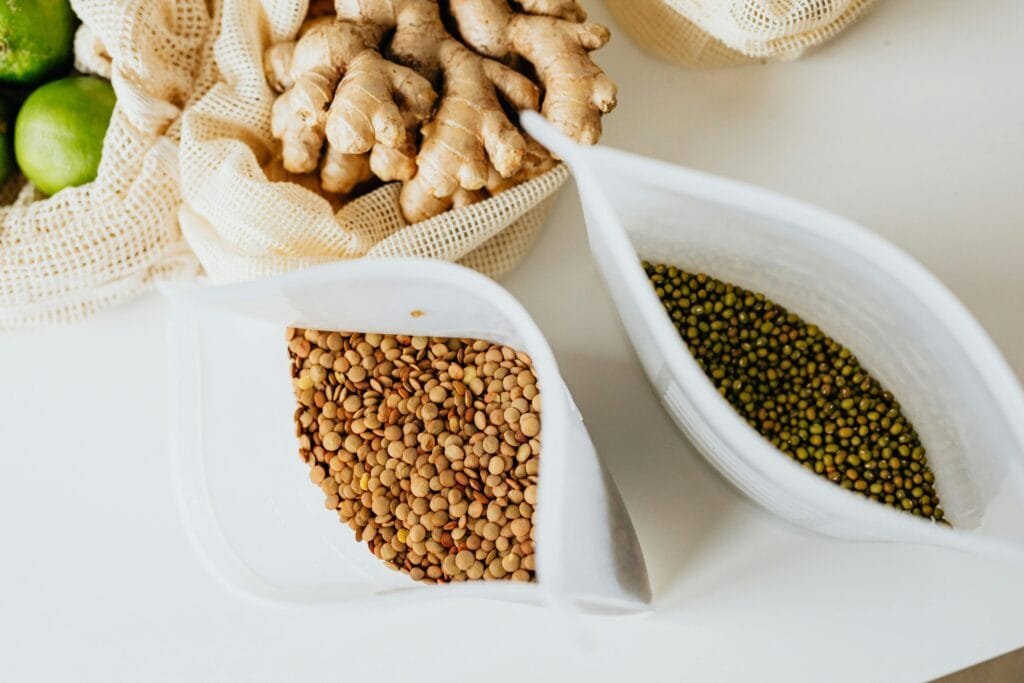
Health Benefits of Vegan Diets
- Improved Heart Health
Naturally low in cholesterol and saturated fat, two major causes of heart disease, vegan diets are heart-healthy. Eating a diet high in whole plant foods offers a wealth of fiber, antioxidants, and heart-healthy fats that lower the risk of heart attacks and hypertension. According to studies, those who follow a vegan diet typically have lower blood pressure and cholesterol than people who eat animal products.

- Control of Weight
A diet high in plants is frequently linked to decreased body weight and a decreased chance of obesity. Fruits, vegetables, and whole grains have a high fiber content that contributes to satiety and lower total calorie consumption. Additionally, vegan diets typically have lower calorie counts, enabling higher serving sizes without consuming too many calories.

- Lower Chance of Chronic Illnesses
A lower risk of some chronic illnesses, such as type 2 diabetes, several malignancies, and kidney disease, has been associated with veganism. The avoidance of processed meats and the focus on meals high in antioxidants are essential for preventing disease. For instance, eating a broad range of fruits and vegetables can reduce inflammation and oxidative stress, two factors connected to chronic illness.
- Improved Digestive Wellbeing
Dietary fiber, which is necessary for preserving a healthy digestive system, is often abundant in vegan diets. Constipation can be avoided, bowel movements can be regulated, and the growth of good gut flora can be supported by fiber. There is a connection between better immunity, mental health, and general wellbeing and a healthy gut flora.

Nutritional Considerations
- Protein Sources for Vegans
It is possible to meet protein requirements on a vegan diet, despite popular assumption. Excellent plant-based protein sources include beans, lentils, seitan, tofu, and tempeh. A thorough amino acid profile is ensured by combining various plant foods, which is crucial for general health and regrowth of muscles.
- Important Vitamins and Minerals
Vegans need to be aware of specific vitamins and minerals that can be more difficult to get from plant-based diets alone. These consist of calcium, iron, vitamin B12, and omega-3 fatty acids. Supplements and foods with added nutrients can help close any gaps. To guarantee a well-balanced diet, leafy greens, fortified plant milks, and algae-based supplements are advised.
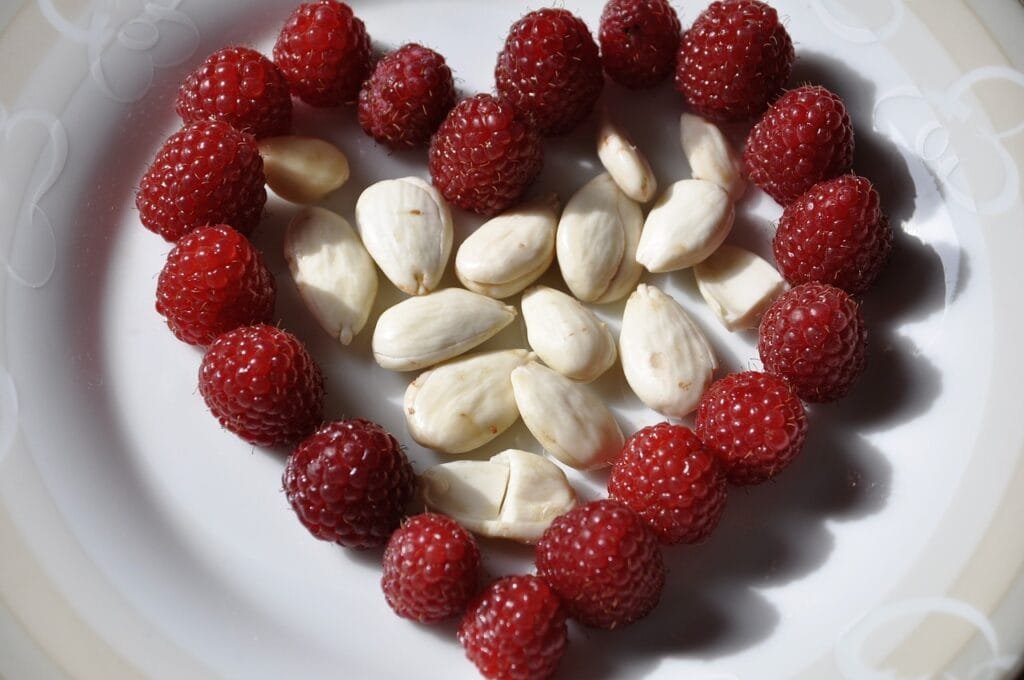
Common Myths About Veganism
- Vegans Don’t Get Enough Protein
As was already said, there are several plant-based foods that are strong in protein. Protein requirements are easily met by vegans who consume a balanced diet rich in a variety of grains, vegetables, and legumes.
- Vegan Diets are Expensive
Depending on the decisions taken, a vegan diet can be just as inexpensive as any other diet. Compared to animal goods, staples including beans, rice, oats, and vegetables are frequently less expensive. Food tastes, not the diet itself, decide how much a vegan diet costs.
- Veganism is Unhealthy for Children
For people of all ages, including children, vegan diets can be safe and healthful with careful preparation. In particular for growing bodies, pediatricians advise maintaining appropriate nutrient intake; yet, a plant-based diet can meet
Nutrition for Hair Health
A balanced diet plays a pivotal role in maintaining healthy, strong hair. Our hair cells are some of the fastest-growing cells in the body, but they are also highly susceptible to dietary deficiencies. To promote hair growth and prevent excessive hair loss, it is essential to provide your body with the right nutrients.
Nutrition for Hair Health
A balanced diet plays a pivotal role in maintaining healthy, strong hair. Our hair cells are some of the fastest-growing cells in the body, but they are also highly susceptible to dietary deficiencies. To promote hair growth and prevent excessive hair loss, it is essential to provide your body with the right nutrients.
Importance of a Balanced Diet
A diet rich in essential nutrients ensures that hair follicles receive the nourishment they need to function optimally. When the body lacks key vitamins and minerals, it prioritizes vital organs over hair health, leading to weakened hair, thinning, or excessive shedding. Ensuring a balance of proteins, healthy fats, vitamins, and minerals can help protect the health and strength of your hair.
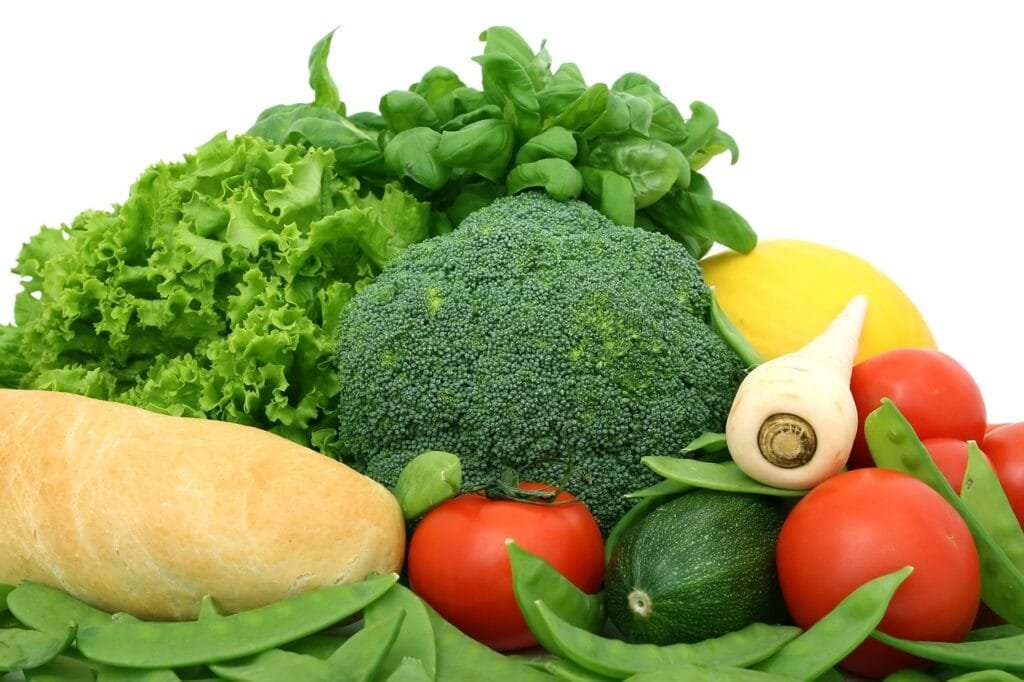
Essential Vitamins and Minerals for Strong, Healthy Hair
- Biotin (Vitamin B7): Biotin is a crucial vitamin for hair growth, aiding in the production of keratin, the protein that makes up hair. A deficiency in biotin can lead to brittle hair and increased hair fall.
- Zinc: Zinc plays an essential role in maintaining the health of hair follicles by supporting tissue growth and repair. It also helps to regulate sebum production, keeping the scalp moisturized and healthy.
- Iron: Iron deficiency is one of the leading causes of hair loss, particularly in women. Iron helps red blood cells carry oxygen to hair follicles, promoting healthy growth. Low levels of iron can weaken hair strands and lead to thinning.
- Omega-3 Fatty Acids: Omega-3 fatty acids nourish the hair and support scalp health. These essential fats are found in the cell membranes of your scalp and in the natural oils that keep hair hydrated and shiny.
1. Legumes (Lentils, Chickpeas, Beans)
- Rich in Protein: Protein is essential for hair structure. Legumes are excellent plant-based protein sources that help strengthen hair and prevent breakage.
- Iron: Iron supports hair health by helping red blood cells deliver oxygen to hair follicles. Iron deficiency can lead to hair thinning.
2. Seeds (Flaxseeds, Chia Seeds, Pumpkin Seeds)
- Omega-3 Fatty Acids: Seeds like flax and chia are rich in omega-3s, which nourish hair follicles and promote growth.
- Zinc: Pumpkin seeds are an excellent source of zinc, which helps with tissue repair and hair growth.
3. Nuts (Almonds, Walnuts, Cashews)
- Biotin: Almonds and walnuts contain biotin, a B-vitamin that promotes healthy hair growth.
- Vitamin E: Nuts are rich in vitamin E, which boosts scalp health and improves blood circulation, encouraging hair growth.
4. Leafy Greens (Spinach, Kale, Swiss Chard)
- Iron and Vitamin C: Spinach and other leafy greens are packed with iron, which supports hair strength. They also contain vitamin C, which enhances iron absorption and collagen production for healthy hair.
- Folate: Folate in greens is important for cell growth, including hair cells.
5. Avocado
- Vitamin E and Healthy Fats: Avocados are rich in vitamin E and monounsaturated fats, which nourish the scalp and improve hair growth by protecting hair follicles from damage.
- Biotin: This fruit also contains biotin, a key nutrient for stronger hair.
6. Whole Grains (Quinoa, Oats, Brown Rice)
- B-Vitamins: Whole grains are rich in B-vitamins like biotin, niacin, and pantothenic acid, all of which promote hair growth and scalp health.
- Silica: Oats are a great source of silica, which strengthens hair strands and prevents thinning.
7. Berries (Blueberries, Strawberries, Blackberries)
- Vitamin C: Berries are high in vitamin C, an antioxidant that helps produce collagen, a key part of hair structure. It also helps prevent hair breakage and enhances iron absorption.
8. Sweet Potatoes
- Beta-Carotene (Vitamin A): Sweet potatoes are rich in beta-carotene, which the body converts into vitamin A. Vitamin A promotes scalp health and supports sebum production, which keeps hair moisturized.
9. Nutritional Yeast
- B-Vitamins: Nutritional yeast is an excellent source of B-vitamins, including biotin and B12 (if fortified), which are essential for hair growth.
10. Soy Products (Tofu, Tempeh, Edamame)
- Plant-Based Protein: Soy products are rich in complete protein, essential for building keratin, the protein that makes up hair.
- Iron and Omega-3s: Soy-based foods provide iron and healthy fats, supporting healthy hair growth.
Additional Tips:
- Hydrate: Drinking enough water is essential for keeping hair moisturized and healthy.
- Supplement if Needed: If your diet lacks certain nutrients, consider vegan supplements for biotin, vitamin B12, or omega-3s to support healthy hair growth.
